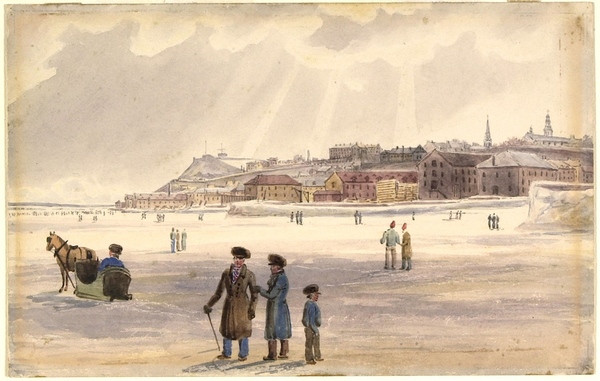- Responsible Government
- Reform Politics in the Colonial Period
- The Idea of Responsible Government in Lower and Upper Canada before 1839
- Lord Durham, His Report, and the Union (1839—42)
- Robert Baldwin and Sir Louis-Hippolyte La Fontaine
- The Baldwin—La Fontaine Ministry (1842—43)
- Continuing Debates in the Province of Canada (1843—48)
- The La Fontaine—Baldwin Ministry: The First Responsible Government of the Province of Canada (1848—51)
- Achieving Responsible Government Elsewhere in British North America
Lower Canada

Source: Link
The Constitutional Act of 1791 provided bicameral legislatures with elected assemblies for the new colonies of Lower and Upper Canada. Pierre-Stanislas BÉDARD was elected to the first assembly. Citing British and other constitutional authorities, he worked assiduously to champion the assembly’s rights and prerogatives, asserting that they were the best means of protecting French Canadians and their way of life:
“In his view, the idea of liberty underlying the British constitution was not primarily democratic in nature; it was rather a concept of balance in the organization of political life: ‘We now enjoy a constitution under which everyone has his place, and in which a man is something. The people have their rights; the powers of a governor are laid down and he knows them; those in high places cannot go beyond the limits that the law sets on their authority…. Such a carefully determined balance exists between the people’s rights and his that if he exceeds the limits the constitution has assigned him … the people have a sure and fair means of stopping him in his course.’...
“[At] the outset of the 19th century Bédard maintained his faith in the British constitution and the principles on which it was founded, in particular that of the balance of powers, which simply transposed to the political sphere the balance of power within society. ‘We consider our present constitution as the one best fitted to create our happiness, and our greatest wish would be to be able to enjoy it in accord with the intention of His Majesty and his parliament,’ he wrote. During these crucial years, however, Bédard stood out from the majority of the assembly members and established himself as the leader of a fledgling political party whose ideology was in its formative stages.... He was convinced that the French Canadian problem and nationalism as they were emerging had an origin that was political before it was social. Discussing the 1791 constitution, which in principle, he suggested in the memorial [to the Prince Regent in 1814], was supposed to translate the existing social forces into the sphere of power, he observed: ‘Unfortunately the manner in which it has until now been administered imparts to it an effect quite contrary to this intention.’”
To learn more about reform politics in Lower Canada, consult the following biographies.





